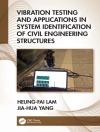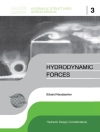This book describes new methods developed for modelling dynamics of machines commonly used in the offshore industry. These methods are based both on the rigid finite element method, used for the description of link deformations, and on homogeneous transformations and joint coordinates, which is applied to the modelling of multibody system dynamics. In this monograph, the bases of the rigid finite element method and homogeneous transformations are introduced. Selected models for modelling dynamics of offshore devices are then verified both by using commercial software, based on the finite element method, as well as by using additional methods. Examples of mathematical models of offshore machines, such as a gantry crane for Blowout-Preventer (BOP) valve block transportation, a pedestal crane with shock absorber, and pipe laying machinery are presented. Selected problems of control in offshore machinery as well as dynamic optimization in device control are also discussed. Additionally, numerical simulations of pipe-laying operations taking active reel drive into account are shown.
Innehållsförteckning
From the content: Introduction.- Overview of Selected Problems in Offshore Technology.- Impact of Water on Offshore Structures and Infrastructure.- Homogeneous Transformations and Joint Coordinates in the Description of Geometry of Multibody Systems.- Equations of Motion of Systems with Rigid Links.- Modelling of Joining Elements. Constraint Equations.












